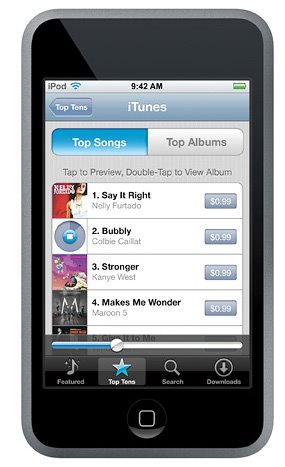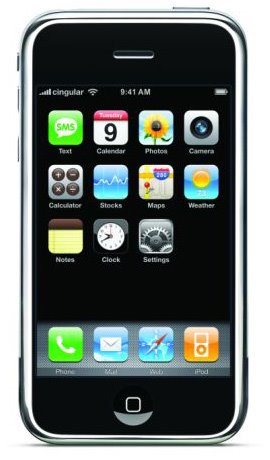This is a new influenza A(H1N1) virus that has never before circulated among humans. This virus is not related to previous or current human seasonal influenza viruses.
The virus is spread from person-to-person. It is transmitted as easily as the normal seasonal flu and can be passed to other people by exposure to infected droplets expelled by coughing or sneezing that can be inhaled, or that can contaminate hands or surfaces. To prevent spread, people who are ill should cover their mouth and nose when coughing or sneezing, stay home when they are unwell, clean their hands regularly, and keep some distance from healthy people, as much as possible. There are no known instances of people getting infected by exposure to pigs or other animals. The place of origin of the virus is unknown.
Signs of influenza A(H1N1) are flu-like, including fever, cough, headache, muscle and joint pain, sore throat and runny nose, and sometimes vomiting and diarrhoea.
Why are we so worried about this flu when hundreds of thousands die every year from seasonal epidemics?
Seasonal influenza occurs every year and the viruses change each year - but many people have some immunity to the circulating virus which helps limit infections. Some countries also use seasonal influenza vaccines to reduce illness and deaths. But influenza A(H1N1) is a new virus and one to which most people have no or little immunity and, therefore, this virus could cause more infections than are seen with seasonal flu. WHO is working closely with manufacturers to expedite the development of a safe and effective vaccine but it will be some months before it is available. The new influenza A(H1N1) appears to be as contagious as seasonal influenza, and is spreading fast particularly among young people (from ages 10 to 45). The severity of the disease ranges from very mild symptoms to severe illnesses that can result in death. The majority of people who contract the virus experience the milder disease and recover without antiviral treatment or medical care. Of the more serious cases, more than half of hospitalized people had underlying health conditions or weak immune systems.
A person should seek medical care if they experience shortness of breath or difficulty breathing, or if a fever continues more than three days. For parents with a young child who is ill, seek medical care if a child has fast or labored breathing, continuing fever or convulsions (seizures). Supportive care at home - resting, drinking plenty of fluids and using a pain reliever for aches - is adequate for recovery in most cases. (A non-aspirin pain reliever should be used by children and young adults because of the risk of Reye's syndrome.)
Yes. influenza A(H1N1) has not been shown to be transmissible to people through eating properly handled and prepared pork (pig meat) or other products derived from pigs. The influenza A(H1N1) virus is killed by cooking temperatures of 160°F/70°C, corresponding to the general guidance for the preparation of pork and other meat.
The main route of transmission of the new influenza A(H1N1) virus seems to be similar to seasonal influenza, via droplets that are expelled by speaking, sneezing or coughing. You can prevent getting infected by avoiding close contact with people who show influenza-like symptoms (trying to maintain a distance of about 1 metre if possible) and taking the following measures:
· avoid touching your mouth and nose;
· clean hands thoroughly with soap and water, or cleanse them with an alcohol-based hand rub on a regular basis (especially if touching the mouth and nose, or surfaces that are potentially contaminated);
· avoid close contact with people who might be ill;
· reduce the time spent in crowded settings if possible;
· improve airflow in your living space by opening windows;
· practise good health habits including adequate sleep, eating nutritious food, and keeping physically active.
If you are not sick you do not have to wear a mask. If you are caring for a sick person, you can wear a mask when you are in close contact with the ill person and dispose of it immediately after contact, and cleanse your hands thoroughly afterwards. If you are sick and must travel or be around others, cover your mouth and nose. Using a mask correctly in all situations is essential. Incorrect use actually increases the chance of spreading infection.
You will not be able to tell the difference between seasonal flu and influenza A(H1N1) without medical help. Typical symptoms to watch for are similar to seasonal viruses and include fever, cough, headache, body aches, sore throat and runny nose. Only your medical practitioner and local health authority can confirm a case of influenza A(H1N1).
If you feel unwell, have high fever, cough or sore throat:
· stay at home and keep away from work, school or crowds;
· rest and take plenty of fluids;
· cover your nose and mouth when coughing and sneezing and, if using tissues, make sure you dispose of them carefully. Clean your hands immediately after with soap and water or cleanse them with an alcohol-based hand rub;
· if you do not have a tissue close by when you cough or sneeze, cover your mouth as much as possible with the crook of your elbow;
· use a mask to help you contain the spread of droplets when you are around others, but be sure to do so correctly;
· inform family and friends about your illness and try to avoid contact with other people;
· If possible, contact a health professional before traveling to a health facility to discuss whether a medical examination is necessary.
No. You should only take an antiviral, such as oseltamivir or zanamivir, if your health care provider advises you to do so. Individuals should not buy medicines to prevent or fight this new influenza without a prescription, and they should exercise caution in buying antivirals over the Internet.
No, not unless your health care provider advises it. Studies on other influenza infections show that breastfeeding is most likely protective for babies - it passes on helpful maternal immunities and lowers the risk of respiratory disease. Breastfeeding provides the best overall nutrition for babies and increases their defense factors to fight illness.
A person should seek medical care if they experience shortness of breath or difficulty breathing, or if a fever continues more than three days. For parents with a young child who is ill, seek medical care if a child has fast or labored breathing, continuing fever or convulsions (seizures). Supportive care at home - resting, drinking plenty of fluids and using a pain reliever for aches - is adequate for recovery in most cases. (A non-aspirin pain reliever should be used by children and young adults because of the risk of Reye's syndrome.)
No. Whether you have influenza A(H1N1) or a seasonal influenza, you should stay home and away from work through the duration of your symptoms. This is a precaution that can protect your work colleagues and others.







0 comments:
Post a Comment